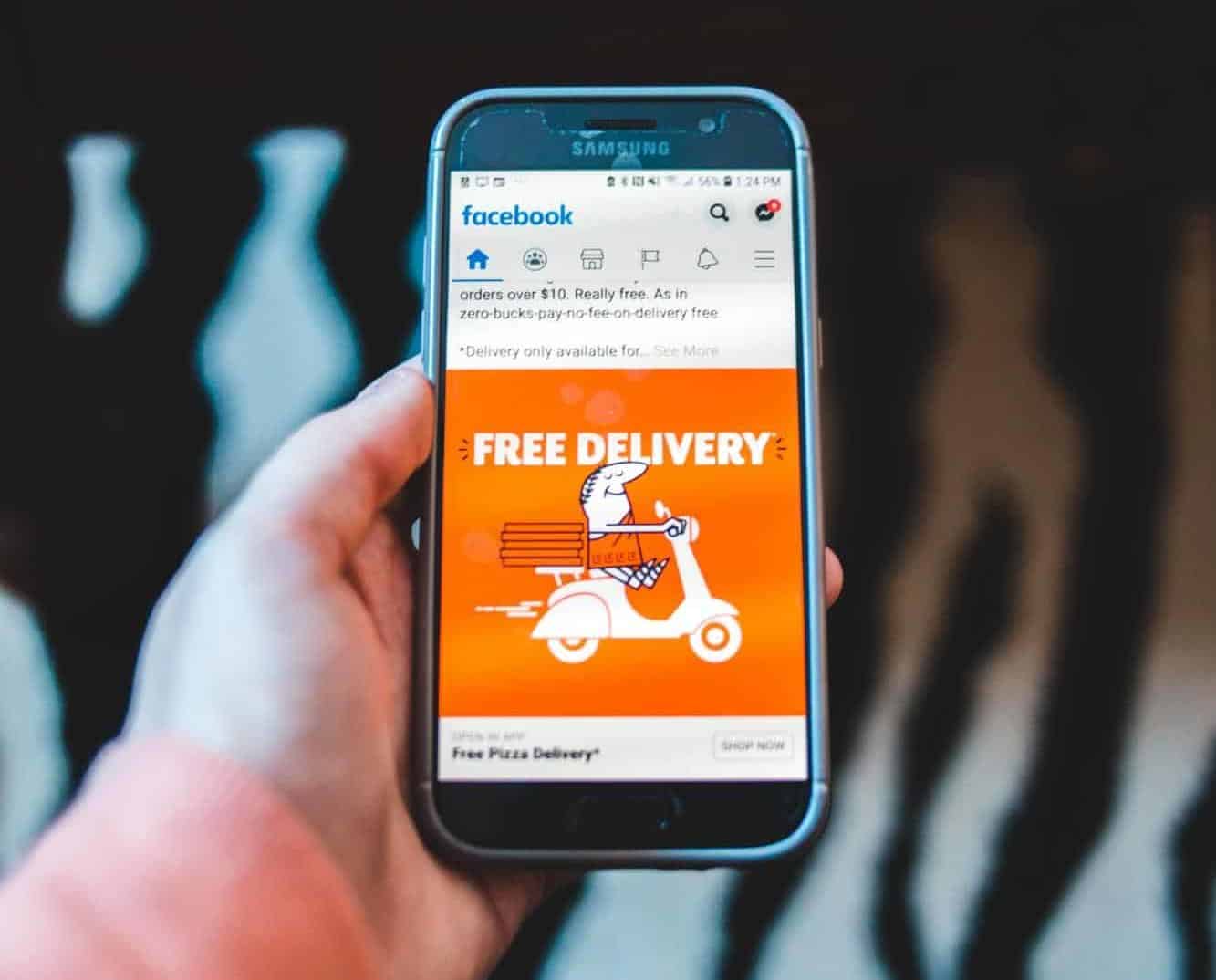An Introduction to Facebook Shops for Small Business

With small businesses providing the majority of Facebook’s advertisers, the platform is naturally invested in helping the “little guys” weather the coronavirus storm.
So in May of 2020, they announced a new feature to help small businesses sell — Facebook Shops. This mobile-first sales platform is the latest FB platform where brands can sell physical products, without a large time or money investment.
Unlike Facebook Marketplace which serves peer-to-peer sales (à la Craigslist), Facebook Shops lets companies set up their own branded storefronts on this mobile-first sales platform.
Facebook Shop Features
Like most Facebook features, Facebook Shops are free to set up, providing users another sales platform with no additional startup costs. Facebook will eventually charge 5% per shipment, or $0.40 for shipments of under $8.00. However, they are waiving fees through the end of 2020 due to the pandemic.
Brands can add as many products as they wish to their shops, and they can customize their look with a cover image and branded accent colors.
Since Facebook owns Instagram, they’ve integrated the shops with both platforms. Users will be able to find a brand’s shop on the business’ Facebook Page, Instagram profile, and within the Shops tab on mobile. Brands can also link to items in their Shops in Stories and Ads on both platforms. This lets you promote and sell your products all in one place.
Another handy feature — customers can message the business right from the Shop through WhatsApp, Messenger, or Instagram Direct Messaging, making it easy to get answers to questions. There is also a future plan to let customers make purchases through those messaging platforms for even easier sales.
Starting Your Shop

If you currently use Shopify or BigCommerce for your ecommerce business, you’re in luck. Facebook Shops integrate with these third party sites, so you can continue to manage your sales on Amazon, Facebook, Instagram, Etsy, eBay, and more from your single Shopify or BigCommerce dashboard.
If you don’t use a third party sales platform, you’ll need to have an existing Facebook Page Shop before you can use the Facebook Shops feature. It goes:
Your Business Facebook Page → Page shop → Facebook Shops (on mobile)
The mobile shop is basically a storefront, but the products themselves will come from the shop on your Facebook Page or your Shopify/BigCommerce store. (Someone at Facebook really needs to come up with more unique names for their features.)
To start your Facebook Page shop, you’ll need to be an Admin of your business’ Facebook Page. It’s also only available for physical products — no services or digital goods.
To get started without a third party integration:
- Select “Shop” on the left hand side of your business’ Facebook Page
- Read the Merchant Terms & Policies, and accept.
- Fill in your payment and tax information
- Add products with pricing, product description, and product images. Add a link to where the customer can check out — usually the product page on your own website.
- Add options like colors, size, inventory, and shipping options.
- Click Add Product
Repeat the process for every product that you’d like to add to your Page shop. You can also organize your products into collections to make them easier for customers to browse.
Once your Page shop is set up, you should be able to create your Facebook Shop.
First, visit Facebook Commerce Manager and click “Get Started.” You can then select either “Set up using an ecommerce platform,” or select “Get Started for Facebook.”
You can make your shop visible on both Facebook and Instagram, and select an existing Catalog (from your Page) to add to your Shop. After you create your shop, you can select Collections to feature.
Finally, you get to personalize your storefront with your brand colors and layout. There aren’t unlimited branding options, but you can at least make the storefront look more like “you.”
Now your Shop is ready for customers to discover!
What Facebook Shops is Not

Facebook Shops is not a substitute for your own independent business website.
Remember that Facebook owns the platform. If you’re relying entirely on Facebook for sales, and suddenly Facebook disappears, what will you do?
Facebook may seem too big to fail, with its 223 million American monthly users. But remember that TikTok has over 100 million American monthly users, and it’s facing this exact possibility as its legal status in the U.S. is being debated.
So use it as a valuable tool, but don’t rely on it entirely.
Will Facebook Shops Revolutionize Ecommerce?
Only time will tell! In the meantime, there’s no downside to more sales channels — especially when there’s no upfront cost. And reducing the steps to make a purchase is always a benefit.
We’re excited to see the results of Facebook Shops, and hope they can help small businesses reach new customers and get more sales.






